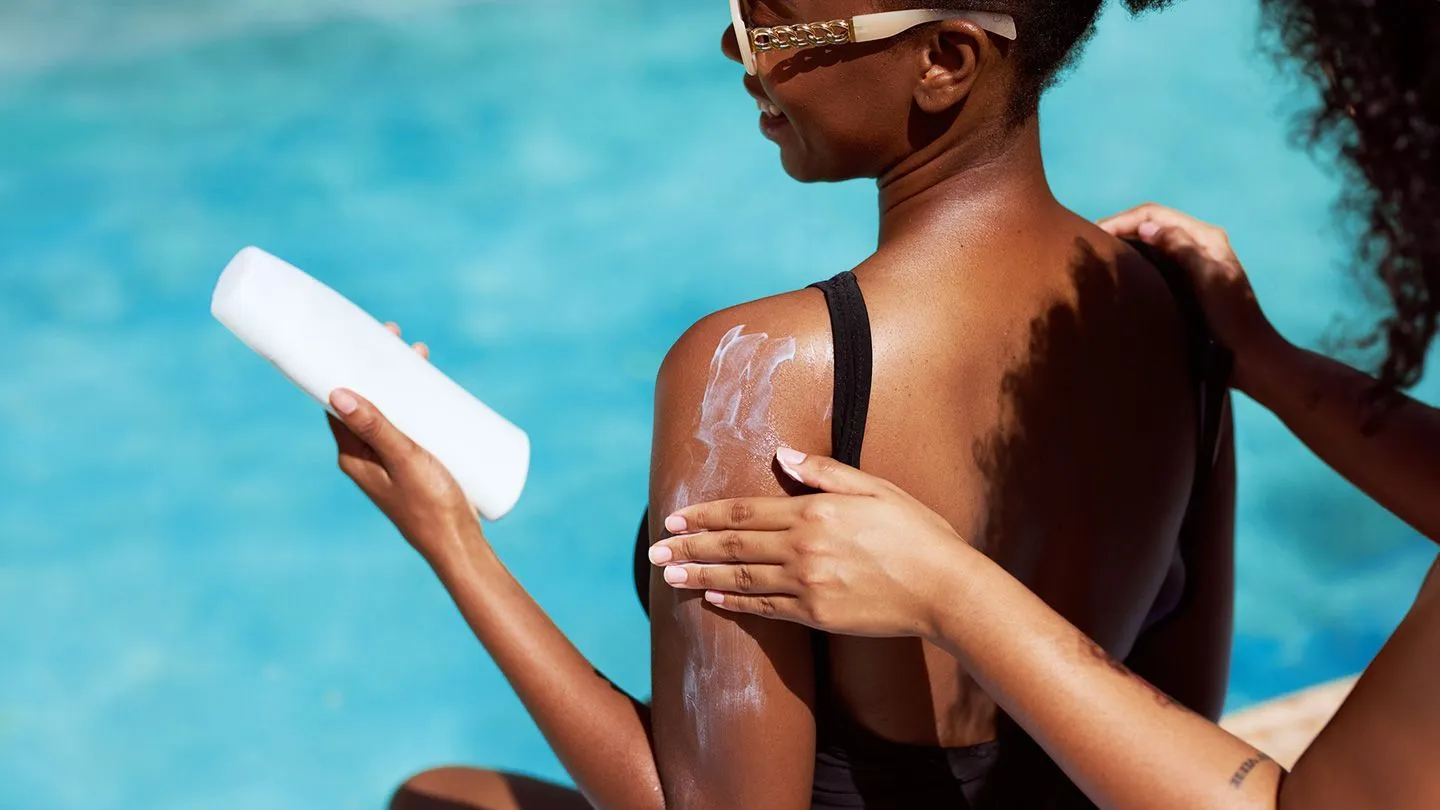The Importance of Sunscreen: Understanding the Differences Between Chemical and Physical Sunscreens
Time:2025-07-18
Why Sunscreen Should Be a Daily Essential for Everyone—And Every Brand
Whether you're in the skincare, spa, cosmetics, or wellness industry, understanding the science behind sun protection is essential—not just for end users, but also for product developers, marketing teams, and distributors. Sunscreen isn’t just a seasonal product. It's a critical component of healthy living and preventative skincare, supported by dermatologists worldwide.
The sun emits ultraviolet (UV) radiation—specifically UVA and UVB rays—which can penetrate the skin and cause significant damage. UVA rays age the skin, causing wrinkles and loss of elasticity, while UVB rays are primarily responsible for sunburn. Long-term exposure without protection increases the risk of skin cancer, including melanoma.
Even on cloudy days or during indoor activities near windows, UV rays can harm the skin. That’s why daily sunscreen use is no longer optional—it's a necessity.
How Sunscreen Works: Two Types, One Goal
Sunscreens act as a shield to block or neutralize harmful UV rays. There are two main categories:
1. Chemical Sunscreens (Organic Filters)
Chemical sunscreens use active ingredients like avobenzone, oxybenzone, octinoxate, or octocrylene. These ingredients absorb UV rays, convert them into heat, and release the heat from the skin.
Benefits:
• Light, smooth texture
• Easy to apply and reapply
• Leaves minimal or no white residue
• Compatible with daily cosmetics and makeup
Considerations:
• Some users may experience irritation or allergic reactions
• Needs time (15–30 mins) after application to become effective
• Certain ingredients may not be reef-safe
Chemical sunscreens are often preferred in consumer markets where texture, finish, and invisible protection are top priorities.
2. Physical (Mineral) Sunscreens
Physical sunscreens, also known as mineral sunscreens, use zinc oxide or titanium dioxide as active ingredients. These minerals form a barrier on the skin that reflects and scatters UV radiation.
Benefits:
• Works instantly after application
• Gentle on sensitive or reactive skin
• Generally more environmentally friendly (reef-safe)
• Suitable for children and people with skin conditions
Considerations:
• Can leave a noticeable white cast on the skin
• Thicker consistency may feel heavier in hot climates
• May require more frequent reapplication during sweating or swimming
Mineral sunscreens are favored in medical-grade skincare, sensitive skincare lines, or where transparency in ingredient sourcing matters.
What Should Your Business Recommend or Sell?
For B2B companies involved in skincare, wellness, or lifestyle products, understanding the differences between these sunscreen types helps with smarter sourcing, clearer labeling, and better customer education.
• Retailers and Distributors: Stock a balanced mix of both types to cater to diverse customer needs.
• Brand Owners and Manufacturers: Develop tailored sunscreen products based on your target audience's skin type and lifestyle (e.g., athletes, children, beauty consumers).
• Spas and Dermatology Clinics: Offer mineral sunscreens for post-treatment recovery or clients with sensitivities.
• Outdoor, Travel, and Hospitality Industries: Educate customers on sunscreen benefits as part of wellness programs or gift kits.
SPF Isn’t Everything: Look for Broad-Spectrum Protection
SPF (Sun Protection Factor) measures protection against UVB rays. But UVA rays are equally harmful. Make sure products are labeled “Broad Spectrum” to ensure complete protection. Educate customers and clients that SPF 30+ is usually sufficient for most people, but reapplication is key—especially after swimming or sweating.
Conclusion: Skin Protection is a Business Opportunity
Sunscreen is more than a skincare product—it’s a long-term health investment. For businesses, offering reliable, science-backed sun protection products is a mark of quality, trust, and care. By helping your customers make informed choices between chemical and physical sunscreens, you not only contribute to public health but also build your brand's authority.

Why Sunscreen Should Be a Daily Essential for Everyone—And Every Brand
Whether you're in the skincare, spa, cosmetics, or wellness industry, understanding the science behind sun protection is essential—not just for end users, but also for product developers, marketing teams, and distributors. Sunscreen isn’t just a seasonal product. It's a critical component of healthy living and preventative skincare, supported by dermatologists worldwide.
The sun emits ultraviolet (UV) radiation—specifically UVA and UVB rays—which can penetrate the skin and cause significant damage. UVA rays age the skin, causing wrinkles and loss of elasticity, while UVB rays are primarily responsible for sunburn. Long-term exposure without protection increases the risk of skin cancer, including melanoma.
Even on cloudy days or during indoor activities near windows, UV rays can harm the skin. That’s why daily sunscreen use is no longer optional—it's a necessity.
How Sunscreen Works: Two Types, One Goal
Sunscreens act as a shield to block or neutralize harmful UV rays. There are two main categories:
1. Chemical Sunscreens (Organic Filters)
Chemical sunscreens use active ingredients like avobenzone, oxybenzone, octinoxate, or octocrylene. These ingredients absorb UV rays, convert them into heat, and release the heat from the skin.
Benefits:
• Light, smooth texture
• Easy to apply and reapply
• Leaves minimal or no white residue
• Compatible with daily cosmetics and makeup
Considerations:
• Some users may experience irritation or allergic reactions
• Needs time (15–30 mins) after application to become effective
• Certain ingredients may not be reef-safe
Chemical sunscreens are often preferred in consumer markets where texture, finish, and invisible protection are top priorities.
2. Physical (Mineral) Sunscreens
Physical sunscreens, also known as mineral sunscreens, use zinc oxide or titanium dioxide as active ingredients. These minerals form a barrier on the skin that reflects and scatters UV radiation.
Benefits:
• Works instantly after application
• Gentle on sensitive or reactive skin
• Generally more environmentally friendly (reef-safe)
• Suitable for children and people with skin conditions
Considerations:
• Can leave a noticeable white cast on the skin
• Thicker consistency may feel heavier in hot climates
• May require more frequent reapplication during sweating or swimming
Mineral sunscreens are favored in medical-grade skincare, sensitive skincare lines, or where transparency in ingredient sourcing matters.
What Should Your Business Recommend or Sell?
For B2B companies involved in skincare, wellness, or lifestyle products, understanding the differences between these sunscreen types helps with smarter sourcing, clearer labeling, and better customer education.
• Retailers and Distributors: Stock a balanced mix of both types to cater to diverse customer needs.
• Brand Owners and Manufacturers: Develop tailored sunscreen products based on your target audience's skin type and lifestyle (e.g., athletes, children, beauty consumers).
• Spas and Dermatology Clinics: Offer mineral sunscreens for post-treatment recovery or clients with sensitivities.
• Outdoor, Travel, and Hospitality Industries: Educate customers on sunscreen benefits as part of wellness programs or gift kits.
SPF Isn’t Everything: Look for Broad-Spectrum Protection
SPF (Sun Protection Factor) measures protection against UVB rays. But UVA rays are equally harmful. Make sure products are labeled “Broad Spectrum” to ensure complete protection. Educate customers and clients that SPF 30+ is usually sufficient for most people, but reapplication is key—especially after swimming or sweating.
Conclusion: Skin Protection is a Business Opportunity
Sunscreen is more than a skincare product—it’s a long-term health investment. For businesses, offering reliable, science-backed sun protection products is a mark of quality, trust, and care. By helping your customers make informed choices between chemical and physical sunscreens, you not only contribute to public health but also build your brand's authority.

Next: No more data

